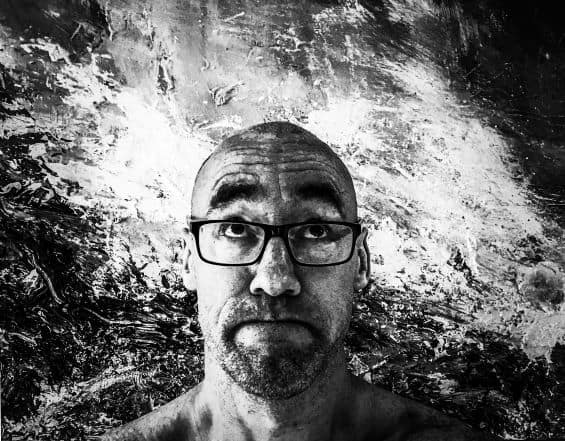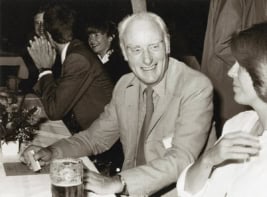Richard Bray is a partner at Appleyard Lees, a UK-based intellectual property law firm.
This post is part of a series on how the COVID-19 pandemic is affecting the personal and professional lives of physicists around the world. If you’d like to share your own perspective, please contact us at pwld@ioppublishing.org.

As a patent attorney, my working life revolves around helping entities protect and exploit their intellectual property (IP). For me, and with my background, that involves interacting with physicists and engineers at start-ups, spin-outs, universities, research bodies and global corporations. Normally, I would look to meet these people in person whenever it made sense, whether that meant popping to a local science park or flying to the US. I always like (liked?) that social interaction: it fits my personality and the way I like to do things.
There’s quite a bit of variety in how IP firms are run. Some have slick electronic systems, but some are still paper-heavy. It’s an old-school profession in some ways. In our case, my team of attorneys and support staff would nearly always be in the same office here in Manchester. Although prepping and filing patent applications, responding to examination reports, and so on is almost 100% electronic, the physical interaction you get in an office environment makes it easier to engender a strong team spirit. Also, it’s just sometimes easier to have a chat about X, Y, or Z without having to draft an e-mail or make a call.
When the pandemic began to affect us, we had to change very quickly. For my team, that meant going from an office-based environment to 100% home working, with electronic workflows, for everyone, in about 24–48 hours. Some of these decisions took seconds to implement, whereas they would normally have taken many meetings (and sometimes meetings about those meetings), and months or years, to roll out. It was quite refreshing to be able to make such changes, without impacting client work, and all whilst making the team more efficient. I have no doubt at all – at all – that nearly all those changes will be permanent, even if we could go back to the office tomorrow.
Uncertainty, squared
It’s an interesting time for our clients too, and that naturally has an impact on us. Some clients have carried on with little or no change, at least in terms of their IP strategy and tactics. Some have even increased their drive in that respect. Others? Perhaps less so. There are clearly lots of factors in play, tied to funding, commercial outlook, access to R&D facilities and functions and so on. Of course, physical meetings have now gone, but we were already meeting lots of clients using video conferencing. For events, we, like many others, are flipping to 100% electronic delivery methods. I’ve done my first podcast, for example – another thing we’d thought about doing for years, and finally did within weeks of the lockdown.
Another – more trivial – change is that I’ve quickly become used to not wearing shoes, or chinos, or worrying about appearances as much. For example, I’m one of the people who has shaved their head. This was partly practical, partly cathartic: my hair was already thinning (perhaps for five or 10 years, some might say), so this pandemic-enforced lockdown was a good time to be brave/stupid about it.
Despite these benefits, though, I miss people. Don’t get me wrong: I absolutely love the fact that I have 1.3 million apps at hand for dialling A, calling B, pestering C, and chatting with D. But it’s not quite the same. While I’m a technical and logical thinker, I am also an emotional and sociable person, and I’m looking forward to a more balanced blend when this is over – one where I work from home a bit more, but still interact as much as I can “in real life”. Travel and sports are big things for me and my family, and I want those back in our lives. We are not very materialistic, and I genuinely just want to get out again, to see the world with my wife and kids. It’s made me realize, more than ever, just how lucky we are – or were – to be able to do that.
The other thing I’m finding difficult is the lack of certainty. In general, I am very efficient and structured at work (and sometimes at home), but when things are uncertain, I sometimes struggle to contextualize what’s going on and what’s coming next. With the pandemic, we have an uncertain event, and uncertain timings – uncertainty squared. Amongst all this uncertainty, I’m trying to focus on keeping clients happy and well-served, while also keeping my family safe and well. As lockdown measures ease, people will begin to have more certainty in terms of how to run their businesses and manage their lives. Even if there isn’t necessarily good news in the short term, I think this certainty will bring more stability, and that will reduce stress levels.
The carrot and the stick
I hope there will be some positives to come out of all this. In fact, I’ll be bolder: I predict there will be loads. For many, home working brings massive flexibility and a more balanced approach to life. I’ve loved exploring my local area a bit more (in a restricted, socially-distanced way), and appreciating what we have, or had, and will (I hope) have again. I’ve no doubt that we will use our local area and its facilities far more after all this, and I know I’m not alone. Look at traffic levels, air quality, pollution – all massively better. I imagine a good few mayors or civic leaders around the world will be thinking “working from home solves a lot of our city’s problems, no?”
Physics in the pandemic: ‘In military terms, the logistical supply line is interrupted’
Finally, without trying to be too deep, the pandemic has made me realize how a big carrot (or stick) can make people change their entrenched views and actions. If you’d told us on 1 Feb 2020 that we’d need to work from home by 3 Feb 2020, I think we’d have laughed you out of the office. But just a month or so later, we did pretty much that, with no impact to our clients. That’s amazing, and it’s certainly made me think about the big issues we face as a country, or even a planet. Could we do the same sort of thing (perhaps over a slightly longer period!) with fossil fuels, climate change, social care, education? A big carrot or big stick (maybe a bit of both) can make us change very quickly, and for the better – that is, if we need to, or want to. Why not try applying this to some of the world’s other problems?




